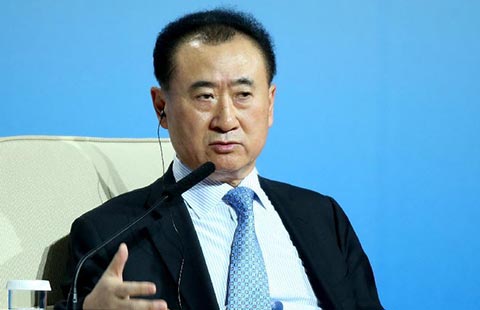Killer competition in electronic device market claims another victim
By Chai Hua and Gao Yuan (China Daily) Updated: 2015-11-10 09:49Fan Wanfu, a director of an abrasive paper factory that supplies to Fu Chang, said his firm is owed 1.2 million yuan. But he feels helpless and stops shy of seeking the money back because other suppliers are owed several millions of yuan.
Yang Sibin, a Fu Chang employee, said he never imagined the company would one day shut because "they have received so many orders and could not finish".
It is learnt that Fu Chang employees were first told the company might face some financial problems. Some senior employees volunteered to donate one month's salary totaling tens of millions yuan to the company, to ride out the crisis. But that would not have sufficed.
For, the company owes about two months of salaries to its 3,800 workers, 270 million yuan to its suppliers and 190 million yuan to banks, according to China Business News.
Fu Chang is not a case in isolation. Since last December, several cases of bankruptcy have been reported in the Shenzhen-Dongguan belt that caters to the mobile phone industry.
For instance, in December 2014, Wintek Corporation, the second-largest producer of touch panels in Taiwan, closed its three factories on the mainland.
In January this year, Zhaoxin Communications in Dongguan admitted failure to carry on due to funding problems. Gao Min, its chairman, even tried to commit suicide to "take responsibility".
On Sept 8, Shenzhen Hongkaixing Plastic Production Co Ltd announced bankruptcy, leaving 35 million yuan in debts to its 214 suppliers. One month later, another Dongguan company, Jinchi Plastic Technology Co Ltd, followed in its footsteps.
Experts believe the key reason for bankruptcies is intense competition.
Wang Jingwen, an analyst at Shanghai-based information technology consultancy Canalys China, said that the China smartphone market remains stagnant quarter-on-quarter and competition among major brands has never been stiffer.
"It is one of the stiffest markets worldwide. Even big companies such as Huawei faced challenges although it gained an impressive market share in China," Wang said.
Xiang Ligang, an independent smartphone market researcher and founder of industry site cctime.com, has echoed those views.
"Severe competition marks every stage of the supply chain," he said.
A professional from a Shenzhen-based listed accessories maker said he expected a 60 percent decrease in his company's mobile phone business.
- Equities rise to 11-week high on stability hopes
- China's self-developed airliner ARJ21 to be delivered
- China's online retail sales to reach $1.6 trillion in five years: report
- Apple gears up for Nov 11 shopping carnival with iPad Pro
- Investment bank CICC soars in HK as sentiment improves
- BMW elevates Kastner to drive brand in luxury car market
- China to stop counterfeits from being exported
- Startups are everywhere, but why only a few succeed
















